Engagement Report 1H21
During 1H21 the Firm has fully revised its Responsible Investment Policy to incorporate ESG considerations into the investment process. A formal process of screening and exclusion, stewardship, engagement, and escalation has been established, in addition to the ESG scoring that has been basis of our ESG approach previously.
In our first year as a signatory to the UNPRI, the Firm made a voluntary report for initial assessment, and we have also become a supporter of the Task Force on Climate-related Financial Disclosure (“TCFD”).
For the first time we have produced a Climate Change Policy, articulating our long term climate target, and how we will assess climate-related risks and opportunities going forward. The process of setting short and medium term climate targets, and reporting in line with TCFD, will involve understanding what needs to happen on the policy and technology fronts for hard-to-abate sectors, and the physical climate risks should these industries fail to transition.
As we interact more frequently with investees and other investors on stewardship and engagement matters, we hope to refine our sustainability targets over time.
Screening and exclusion
All current and prospective investments are now screened for breaches against minimum standards of business practice based on international norms, and for controversial practices that have adverse impacts on society and the environment in line with established expectations for Responsible Business Conduct. The framework consists of the Principles of the UN Global Compact, the OECD Guidelines for Multinational Enterprises, and the UN Guiding Principles for Business and Human Rights, and is embedded in the Sustainable Development Goals.
The revised Exclusion Policy includes verified failures of the above, and other controversial practices. In particular we will engage coal producers and owners of coal-fired power assets to have a 2040 coal exit plan (2030 in OECD).
Proxy voting
Our proxy voting policy has been updated to reflect best practice in sustainability, to bring it in line with the ESG factors we consider in our internal ESG scoring, and to apply responsible investment considerations consistently in our investment process. Considerations include matters such as board diversity, equal pay, transparency on compliance with labour and human rights, tenure of directorships, changes to the articles, and excessive compensation. We will also encourage companies to report in accordance with the TCFD framework, including setting a Science Based Target, identifying risks related to climate change, and considering mitigation measures.
Engagement
Our engagement process has now been formalised, with clearer objectives, an escalation process and timeframe clearly set out.
Current engagements are as follows:
Screening: 4 current holdings have been identified to be in significant breach of norms, and we have commenced verification of the scope of impact, and engagement with investees to ascertain the level of remediation undertaken. Divestment may be necessary following the 6-month grace period commencing with the initiation of the engagement process.
Coal Exit: we are in the process of identifying coal-related holdings and will aim to engage with companies regarding coal exit by 2040 (2030 in OECD). We encourage coal phase out, rather than the outright sale of assets, and plans that ensure fair outcomes for all workers and communities.
Collective engagement: as a signatory to Climate Action 100+ we will be participating in coal phase out, energy transition, and target setting issues with particular investees. We have also signed up to the Workforce Disclosure Initiative (“WDI”) which aims to improve corporate transparency and accountability on workforce issues. We will be writing to holdings on the WDI target list to encourage them to complete the survey.
We have also engaged AU Optronics on behalf of ShareAction’s Investor Decarbonisation Initiative. Topics of discussion include the company’s climate ambitions, use of renewables, and Taiwan’s energy policy.
Due to our increased engagement activity and the number of ongoing initiatives, the ESG Committee has decided to meet on a monthly basis from May 2021 onwards, and will report on engagement and voting activity on a semi-annual basis.
